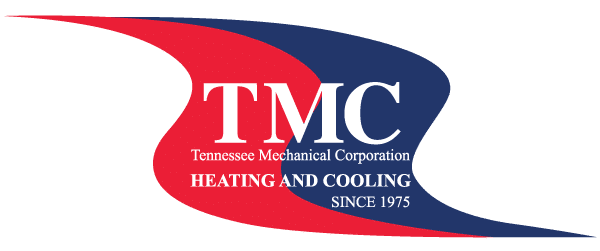
21 Aug Prepare your HVAC system now for fall weather
A Homeowner’s Guide: Preparing Your HVAC System for Late Summer and Fall
As summer heat fades and fall arrives, it’s important to get your home’s HVAC system ready for the change in seasons.
Regular maintenance keeps your home comfortable, lowers energy bills, and helps your HVAC unit work well all year long.
In this guide, we will show you how to get your HVAC system ready for late summer and fall. We will cover the best temperature settings, when to schedule maintenance, and how to spot signs of problems to keep your system working well.
Adjusting Your Thermostat: Ideal Temperature Settings
As temperatures begin to drop, it’s tempting to start cranking up the heat. Setting your thermostat to the right temperature can help you stay comfortable. It also prevents your HVAC system from working too hard. This can save you money on your energy bills.
- Late Summer: In late summer, keep your thermostat at 78°F when you’re home and 85°F when you’re away to save energy. This setting strikes a balance between comfort and energy efficiency.
- Early Fall: As the weather cools, adjust your thermostat to maintain a comfortable indoor environment. A setting of 68°F during the day when you’re home is generally comfortable. At night, or when you’re away, lowering it to 60-65°F can help save energy.
Pro Tip: Consider using a programmable or smart thermostat to automate these temperature adjustments. Adjusting the thermostat based on your daily schedule can help you save energy and stay comfortable. This means the thermostat will automatically change the temperature throughout the day. By programming the thermostat to lower the temperature when you’re away or asleep, you can reduce energy usage. This will also ensure that your home is at a comfortable temperature when you are there.
Schedule a Professional HVAC Maintenance Check
Scheduling professional maintenance with an HVAC technician is a crucial step in getting your HVAC system ready for the shift in seasons. The ideal time to do this is from late summer to early fall, as it guarantees your system is at its best performance before the cooler months start to put more demand on it.
What to Expect During Maintenance:
- Inspection of the HVAC System: A professional technician will thoroughly inspect your system, checking for any wear and tear, leaks, or other issues that could cause problems as you start using the heating function more frequently.
- Filter Replacement: The technician will replace your HVAC filters, which should be done every 1-3 months depending on usage. Clean filters are crucial for maintaining good air quality and efficient system operation.
- Ductwork Inspection: The technician will check your ductwork for any signs of leaks, blockages, or damage. Ensuring that your ducts are in good condition can improve your system’s efficiency and help prevent energy loss.
- Check Thermostat Calibration: The technician will ensure your thermostat is calibrated correctly, which is essential for accurate temperature control and energy efficiency.
- Lubrication and Cleaning: Moving parts will be lubricated, and components will be cleaned to ensure smooth operation and to prevent breakdowns.
Regular maintenance helps your HVAC system run better and last longer. It also allows you to find problems early. This can prevent costly repairs in the future.
Inspect and Clean Vents and Registers
During late summer, it’s common for dust and debris to accumulate in your HVAC system’s vents and registers. This can reduce airflow and force your system to work harder, leading to increased energy use and potential strain on the system.
Cleaning Tips:
- Vacuum Regularly: Use a vacuum with a brush attachment to clean the vents and registers. This helps to remove dust, pet hair, and other debris that could impede airflow.
- Inspect for Obstructions: Ensure that furniture, rugs, or curtains aren’t blocking any vents. Obstructions can prevent proper air circulation, making your HVAC system less effective.
- Check for Mold or Mildew: Look for any signs of mold or mildew around your vents. If you notice any, it’s essential to address it immediately, as this can impact your indoor air quality and your family’s health.
Replace or Clean the Air Filter
Your HVAC system’s air filter plays a critical role in maintaining indoor air quality and ensuring your system runs efficiently. As summer winds down, it’s a good idea to replace or clean your air filter to prepare for the increased use of your heating system in the fall.
Why It Matters:
- Improved Air Quality: A clean air filter helps trap dust, pollen, and other airborne particles, improving the air quality inside your home.
- System Efficiency: A clogged or dirty filter can cause your HVAC system to work harder, leading to higher energy bills and increased wear and tear on the system.
Pro Tip: Consider using high-efficiency filters, especially if you have allergies or asthma, as these can capture smaller particles and help improve air quality even further.
Test Your Heater Before You Need It
Before the cool weather arrives, it’s wise to test your heating system. Turning it on now, even if you don’t need it yet, can help identify any issues before they become serious problems during the colder months.
Steps to Test Your Heater
- Turn It On: Set your thermostat to the heating mode and raise the temperature. Listen for the system to start, and pay attention to any unusual noises, smells, or behaviors.
- Check the Vents: Ensure that warm air is coming out of the vents. If the air is cool or if the system doesn’t seem to be working properly, it’s time to call a professional.
- Look for Leaks: While the system is running, inspect your ductwork and any visible components for signs of leaks or damage.
Testing your heater early gives you ample time to schedule repairs if necessary, avoiding the rush of service calls once temperatures drop.
Consider Upgrading Your HVAC System
If your HVAC system is more than 10-15 years old, it may be time to consider upgrading to a newer, more energy-efficient model. Modern HVAC systems are designed to be much more efficient than older models, which can lead to significant savings on your energy bills over time.
Benefits of Upgrading:
- Improved Efficiency: Newer systems use less energy to heat and cool your home, which can lower your utility bills.
- Enhanced Comfort: Modern HVAC systems often come with advanced features like variable-speed motors and smart thermostats that provide better comfort control.
- Environmental Impact: Upgrading to a more efficient system can also reduce your home’s carbon footprint, contributing to a more sustainable environment.
Pro Tip: If you’re considering an upgrade, late summer or early fall is an excellent time to do so. Many HVAC companies offer promotions or discounts during this period as they prepare for the busy winter season.
Seal and Insulate Your Home
Lastly, as you prepare your HVAC system for the cooler months, don’t forget to seal and insulate your home. Proper insulation and sealing can prevent heat loss, ensuring your HVAC system doesn’t have to work overtime to keep your home warm.
Sealing Tips:
- Check Windows and Doors: Inspect the seals around windows and doors, and apply weatherstripping or caulk where needed to prevent drafts.
- Insulate Attics and Basements: Ensure your attic and basement are properly insulated. These areas are common sources of heat loss.
- Close Fireplace Dampers: If you have a fireplace, make sure the damper is closed when not in use to prevent warm air from escaping.
Taking these steps can help reduce the strain on your HVAC system, improve your home’s energy costs, and keep your home more comfortable throughout the fall and winter.
Conclusion
Preparing your HVAC system for late summer and fall is essential for maintaining comfort, energy efficiency, and the longevity of your system.
By adjusting your thermostat settings, scheduling professional maintenance, cleaning your vents and filters, and testing your heater, you can ensure your home remains cozy as the seasons change.
Additionally, considering an HVAC upgrade and sealing your home can further enhance your system’s efficiency and save you money in the long run. Don’t wait until the first cold snap to start thinking about your HVAC system—take these steps now to keep your home comfortable all year round. Contact TMC today to schedule an HVAC inspection at your home.

